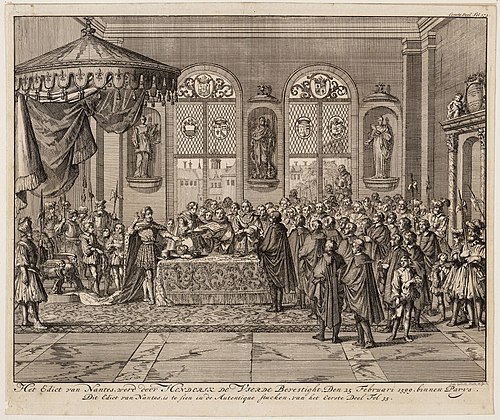Year 1598 Overview
The year 1598 (MDXCVIII) was characterized as a common year that commenced on Thursday under the Gregorian calendar, and on Sunday under the Julian calendar. It marked the 1598th year of the Common Era (CE) and Anno Domini (AD), the 598th year of the 2nd millennium, the 98th year of the 16th century, and the 9th year of the 1590s decade. Notably, at the beginning of this year, the Gregorian calendar was positioned 10 days ahead of the Julian calendar, which remained in use in certain regions until 1923.
Major Events
January–March
January 8 – Joachim Frederich of the House of Hohenzollern ascends as the new Elector of Brandenburg following the death of his father, Johann Georg von Brandenburg.
January 17 – The Tsar of the Russian Empire, Feodor I, passes away due to an unexpected illness at the age of 40, concluding the Rurik dynasty. His widow, Irina Godunova, briefly takes measures to secure her position.
January 26 – Facing opposition from the Russian nobles, Irina Godunova renounces her power, ceding the throne to her brother, Boris Godunov.
January 29 – A contingent of 50,000 troops from the Korean kingdom of Joseon and Chinese Ming dynasty forces initiates a siege on the Ulsan castle, held by Japanese forces.
February 21 – Boris Godunov is chosen as the new Tsar of Russia by the unanimous vote of the Zemsky Sobor.
March 19 – Count Adolf von Schwarzenberg of Austria recaptures the Turkish fortress at Győr, four years after it had fallen.
March 20 – King Henry IV of France conquers the Duchy of Brittany, forcing the surrender of Philippe Louis de Lorraine-Mercœur, who is subsequently exiled.
April–June
April 13 – The Edict of Nantes is issued by Henry IV of France, granting French Huguenots equal rights with Catholics, signaling the conclusion of the French Wars of Religion.
April 30 – In Mexico, Juan de Oñate claims the territory north of the Rio Grande as part of the Spanish Empire.
May 2 – The Peace of Vervins is established, concluding the conflict between France and Spain.
June 9 – The Principality of Wallachia becomes a vassal state of the Austrian Habsburgs and the Holy Roman Empire.
July–September
July 12 – Juan de Oñate declares the establishment of the colony of Santa Fe de Nuevo Méjico, becoming its first Viceroy.
August 14 – The Battle of the Yellow Ford occurs in Ireland, where Hugh O’Neill defeats an English force.
September 18 – General Toyotomi Hideyoshi of Japan dies, leading to his son, Hideyori, being named as the successor.
October–December
October 19 – The siege of Suncheon by Korean and Chinese forces takes place.
December 16 – The Battle of Noryang is fought, resulting in a decisive victory for the allied Korean and Chinese fleet against the Japanese navy.
Notable Births
January 23 – François Mansart, French architect (d. 1666)
March 12 – Guillaume Colletet, French writer (d. 1659)
June 4 – Åke Henriksson Tott, Swedish soldier and politician (d. 1640)
December 7 – Gian Lorenzo Bernini, Italian sculptor (d. 1680)
Notable Deaths
January 16 – Tsar Feodor I of Russia (b. 1557)
September 13 – King Philip II of Spain (b. 1527)
September 18 – Toyotomi Hideyoshi, Japanese warlord (b. 1537)
December 16 – Yi Sun-sin, Korean naval leader (b. 1545)
This format maintains the structure and provides key historical details with emphasis on important terms.

